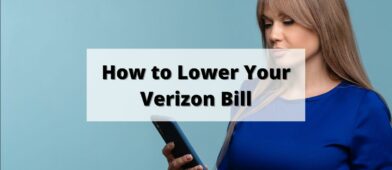Can you guess how many banks failed during the Great Recession?
We all know the big ones like Washington Mutual and IndyMac – but hundreds of them failed. Having been a working adult with a 401(k) and a house, that time period was extremely scary. We didn’t know if the financial system was going to collapse since so many banks were interconnected.
I’d read about bank runs in history books but had never seen them first hand… and people were lining up outside Washington Mutual to try to get their money out.
And it was FDIC insured! (they might not have known)
That’s when I realized that FDIC insurance was huge in keeping me sane because I knew that a bank failure wasn’t going to wipe out any of my money. My investments were going to take a beating but I had accepted that.
Here’s the thing though – we now have so many more accounts and not all of them are insured. Many of those new banking apps get pass-through insurance (and they make a big deal about it, as they should), but it’s still important to review what does and does not get protection.
You may not know that these five bank-like accounts do NOT get insurance:
Table of Contents
1. Brokerage Assets
Brokerages are not covered by FDIC insurance. Your cash there is not protected by FDIC (don’t worry, it has some protections).
You probably know that your shares of a company’s stock are not FDIC insured. You are probably also aware that your entire brokerage account is not FDIC insured. But all of this is covered by SIPC insurance – Securities Investor Protection Corporation insurance.
It is similar to FDIC insurance in that it protects you if the brokerage fails financially. You get $500,000 of protection for all accounts at one institution and a maximum of $250,000 for cash held there.
This means that your cash at a brokerage is not covered by FDIC, it’s covered by SIPC instead. So you have coverage, it’s just by a different entity.
Boo! Feel cheated by the title? Don’t worry, I just had to get the boring one out of the way. It gets better.
2. Stored Value Cards
Want to hear an absolutely astounding statistic? Starbucks has roughly $1.6 billion in “stored value card liabilities” – or what people have saved to their gift cards balances.
They pay 0% interest on this massive loan and it is lightly regulated (as a gift card) but has zero protections if Starbucks goes out of business.
In fact, many businesses fail and those gift card balances are worth absolutely nothing. What’s even scarier is that when a business files for bankruptcy, sometimes they even say that you can’t use the card in their stores anymore! The stores are open, doing business, but they’ve decided to stop accepting the cards. It’s unfair but the business is in its last dying breath so I suppose they’re doing whatever they can to survive – including stealing your money!
If they do go bankrupt, sometimes you can get value for them if the stores are closed but there’s no official recourse.
3. Safe Deposit Boxes
I have a sneaking suspicious that safe deposit boxes were once a lot more popular than they are today. I’ve never considered getting one but everyone in parents’ generation seems to have one for important documents and belongings.
As it turns out, the contents of a safe deposit box are not FDIC insured. The bank may have separate insurance for its customers but the FDIC doesn’t cover them or the contents inside.
This is only bad if the contents of the box are stolen or destroyed. In a bank failure, the acquiring bank would get the offices and boxholders would be able to access their boxes anyway so it’s not a big deal.
4. PayPal, Venmo, etc.
These are the two payment platforms I use but this extends to nearly all of them. Your PayPal balance may not be FDIC insured. If you keep cash in your Venmo account, it may not be FDIC insured.
By default, you should assume it is not insured unless you can find, in the terms & conditions, the situations where it is insured.
Whether it’s insured is a bit complicated because how where it might be held when it’s transferred to your account. If I send you $5, it’s not insured.
If you get your direct deposit sent to your Venmo account, those funds are being held at Bancorp Bank or Wells Fargo and get FDIC pass-through insurance. If you use remote check capture, those funds are held at Bancorp Bank or Wells Fargo and get insurance. Otherwise, they all get lumped in together with other Venmo account holders and invested in liquid investments. It’s in the Venmo user agreement:
If your Venmo account is not eligible for FDIC pass-through insurance, we combine the money in your Venmo account with the Venmo money of other Venmo account holders and invest the money in liquid investments in accordance with state money transmitter laws. We own the interest or other earnings on these investments. However, the claim against us represented by the money in your Venmo account is not secured by these investments and you do not have any ownership interest (either legal or beneficial) in these investments. These pooled amounts are held apart from our corporate funds, and we will neither use these amounts for our operating expenses or any other corporate purposes nor will we voluntarily make these amounts available to our creditors in the event of bankruptcy.
So be aware that many of these payment processors don’t have FDIC insurance because they’re not banks to begin with. Don’t keep a balance unless you have a really good reason and even then, keep it small.
In some cases, you can get FDIC coverage if you get other products from processor because they change how they store your funds. For example, I had mentioned Venmo puts direct deposits and remote check deposits into an account at a partner bank.
For PayPal, you can get coverage when you get a PayPal Cash Card. It’s a debit card and they put your funds into an account that has FDIC pass-through insurance. This also happens if you get direct deposits too. (as you’d expect, it goes into a Wells Fargo)
5. Alternative Investments
Alternative investments are popular right now as different platforms give you access to different asset classes.
We all know that whatever you invest in is not FDIC insured but many of these platforms give you the ability to keep cash in a wallet. This can reduce the friction in making investments but those balances may not be FDIC insured. You have to review each on a case by case basis to know for sure.
AcreTrader is one platform that lets you invest in acres of farmland and they also have a wallet. It’s unclear whether wallet balances are FDIC insured or not.
I emailed AcreTrader and was told that their partner can’t guarantee that the funds in the wallet are insured. I think it has to do with how funds move around and there are points at which it’s not insured. With AcreTrader, there’s no reason to keep funds in the wallet because there’s no secondary market. It’s just a holding spot before you transfer it out.
6. Cryptocurrencies
Cryptocurrencies may have value and are considered assets, but much like shares of stock they do not get the protections of FDIC insurance. In fact, they don’t get SIPC insurance either so if your custodian goes under, you have no recourse through SIPC.
Some platforms will offer FDIC insurance on cash balances through the same pass-through coverage that I mentioned earlier with PayPal. For example, Coinbase offers pass-through insurance on cash balances:
To the extent U.S. customer funds are held as cash, they are maintained in pooled custodial accounts at one or more banks insured by the FDIC. Our custodial accounts have been established in a manner to make available pass-through FDIC insurance up to the per-depositor coverage limit then in place (currently $250,000 per individual). FDIC pass-through insurance protects funds held on behalf of a Coinbase customer against the risk of loss should any FDIC-insured bank(s) where we maintain custodial accounts fail. FDIC insurance coverage is contingent upon Coinbase maintaining accurate records and on determinations of the FDIC as receiver at the time of a receivership of a bank holding a custodial account.
Make sure your cash is in an account that gets FDIC protection and if there are reasons you can’t, make sure you keep as little as possible. The probability that they go under is slim but why risk it?



